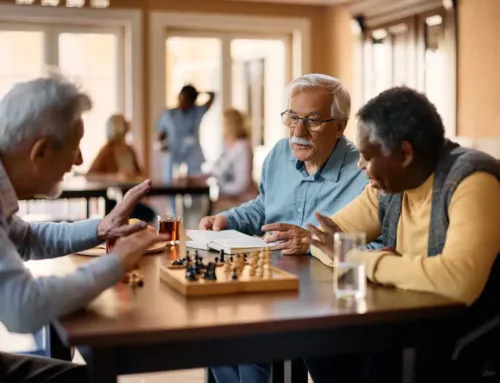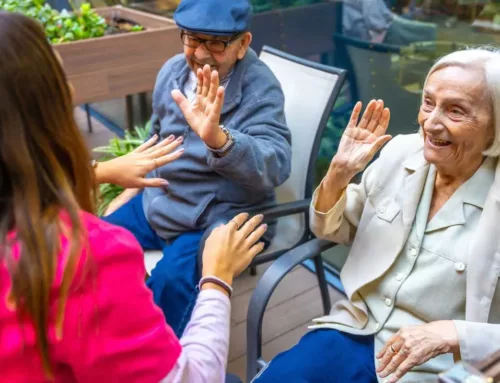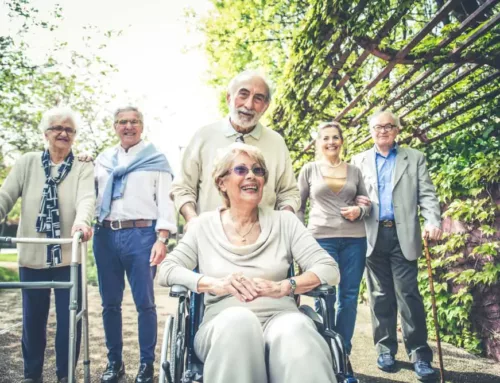Residential assisted living is a type of long-term senior care that promotes independence, community participation, and fulfilling activities. Residents typically live in a small home setting with a private or shared bedroom, and caregivers are on-site 24/7 to provide practical assistance. This makes residential assisted living a choice that delivers comfort, safety, and quality of life in equal measure.
Assisted living is often an excellent option for seniors who need some support with activities of daily living (ADLs) but do not have complex medical conditions requiring skilled nursing care. Let’s look at some areas where seniors frequently face challenges and how residential assisted living can help solve these issues.
Activities of Daily Living
As a senior ages, vital daily activities, errands, and personal care tasks like shopping, meal preparation, bathing, and getting dressed can become much more difficult. Challenges may arise due to declining mobility, an inaccessibly designed home, Alzheimer’s disease, or a combination of factors.
In residential assisted living like Saguaro Ranch, seniors can receive all the practical support they need from professional caregivers. This may include dignified and compassionate personal care, medication management, or specialist support from visiting professionals like physical or occupational therapists. This attentive assistance makes seniors feel comfortable, confident, and ready to enjoy every day.
Social Life
Seniors with health and mobility issues that prevent them from leaving the house (or reduce their confidence to do so) and those who have lost friends, siblings, or a spouse may be particularly vulnerable to loneliness. When faced with obvious physical issues like reduced mobility, it can be easy to overlook the effects of social isolation on seniors. Still, loneliness can significantly affect mental health and quality of life.
Residential assisted living communities provide numerous opportunities for residents to form social connections from the comfort and safety of home. For example, mealtimes are typically a social affair, and most communities offer a great range of events, recreational groups, and organized activities for residents to enjoy. Each day, seniors can connect with caregivers and fellow residents.
Safety and Security
Living alone can present many safety and security threats for aging seniors. Many residential homes are not designed to meet the needs of those with reduced mobility. Standard fixtures like stairs, curbed showers, deep bathtubs, or hazards like uneven floors can all increase a senior’s risk of suffering from a fall.
Residential assisted living communities are accessibly designed to reduce the risk of falls and accidents while allowing residents to move around as freely and independently as possible. Senior care communities also typically have an effective security system and defined procedures for everything from fire safety to infection control – be sure to ask about these during your visits.
Home Maintenance
It’s common for seniors to live in homes they can’t take care of alone. For example, a senior’s home may be the same one in which they raised their family. If this home is now much too large for them, maintenance and upkeep may have become unachievable. Daily chores like cleaning, washing the dishes, and gardening can become increasingly difficult or impossible due to declining mobility, injury, or illness.
Moreover, maintaining a home may also be a tremendous financial burden. The cost of repairs and general upkeep can be high – this might be especially true if their home is old or particularly big. In residential assisted living, seniors no longer worry about keeping a house in good working order. Their new home’s cleaning, maintenance, and upkeep are typically included in the monthly fee.
Transportation
If a senior can no longer drive, they might find it challenging to get out to socialize, attend appointments or take a leisurely trip to the store. Faced with challenges like reduced mobility or cognitive decline, using public transportation may also be a daunting option. Being unable to travel as needed may lead to social isolation or neglected health issues due to missed appointments. Many residential assisted living communities offer transportation to essential appointments or even to social meetings in the local area.
Independence
All the above issues can ultimately lead to a senior relying more heavily on the support of family members or friends. This loss of independence can be difficult; many seniors have led very independent lives, and suddenly being unable to do what they always have done may be distressing. Reduced independence could even lead to a senior losing their sense of purpose or identity, and these difficult feelings may ultimately result in declining mental and emotional health.
Residential assisted living can offer a complete package of services to improve every aspect of a senior’s mental and physical health. These services can be tailored to meet the needs of each individual, allowing them to remain as independent as possible throughout their retirement. With compassionate personal care, ADL support, no home maintenance, and nutritious, delicious meals, seniors in residential assisted living can focus on enjoying a rich social life, pursuing hobbies and interests, and living out the retirement they always envisioned.
To learn how Saguaro Ranch assisted living can benefit you or a senior loved one, give us a call today to arrange a visit and meet our dedicated team.





